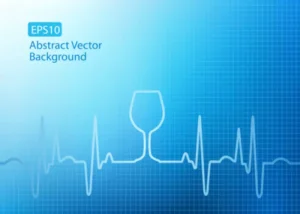The studies that led to FDA approval of Epidiolex® for the treatment of severe forms of epilepsy, used CBD as an adjunct to clobazam, valproate, levetiracetam, and topiramate, resulting in seizures reduction with few AEs, compared to other drugs. Human CBD studies for epilepsy and psychiatric disorders reported CBD-induced drug-drug interactions, hepatic abnormal-ities, diarrhea, fatigue, vomiting, and somnolence. This study showed that CBD, compared to placebo, helped decrease the cue-induced craving and anxiety of individuals with heroin use disorder. Many people with opioid use disorders seek alternative treatments to curb cravings and reduce stress and are reluctant to try agonist treatments such as methadone or suboxone.
Supports Brain and Nerve Conditions
However, there were no significant differences between CBD oil and placebo regarding negative psychotic symptoms (like blunt affect or disinterest in others). Currently, the only CBD product approved by the Food and Drug Administration is a prescription oil called Epidiolex. While CBD is being studied as a treatment for a wide range of conditions, including Parkinson’s disease, schizophrenia, diabetes, multiple sclerosis and anxiety, research supporting the drug’s benefits is still limited.
Sources of CBD Oil and What to Look For
- A 2015 review of available preclinical and clinical data found that CBD had therapeutic properties in the treatment of cocaine, opioid, and psychostimulant addiction.
- “A lot of cannabidiol that’s available for public consumption right now is cannabidiol mixed with a bunch of other stuff from cannabis. It’s not pharmaceutical-grade cannabidiol,” Dr Gururajan said.
- This section details all the available evidence, both pre-clinical and clinical, about the therapeutic potential of CBD in the management of various SUD.
- Thus, adolescent cannabis use may affect brain development and result in enduring alterations in the GABA/glutamate balance in the PFC (Renard et al. 2016).
- Conventional drugs can help relieve stiffness and pain, but some people see CBD as a more natural alternative.
- In our recent study, intra-NAc administration of either D1R or D2R antagonist impaired CBD’s suppressive effect on the expression phase, while just a D2R antagonist alone inhibited the CBD’s impact on the acquisition phase of the METH-induced CPP (Sharifi et al., 2021).
- Compared to placebo, the participants recieved alcohol and CBD and those consumed alcohol alone suffered significant impairments of motor and psychomotor performance and conveyed significant overestimations of time.
The results of a small 2016 study of 31 adults show that while active THC produced substantial physical and psychological effects, such as rapid heart rate and euphoria, CBD did not affect heart rate, blood pressure, or cognitive function. The National Center for Complementary and Integrative Health cautions that CBD may be harmful to some people. In some studies, the use of Epidiolex was linked to liver https://ecosoberhouse.com/ problems and drug interactions. Studies also suggest that CBD may have potential in the treatment of depression. For example, one study found that CBD influences how the brain responds to serotonin, which may have an antidepressant-like effect. In addition to mental health benefits, some research indicates that CBD might be helpful for reducing pain, relieving nausea, and treating inflammation.
CBD Isn’t Addictive, But It Does Have Other Effects
CBD was also shown to interact with P-glycoprotein efflux transporters involved in multidrug resistance [111] and may also affect placental permeability and pharmacokinetics of other drugs. In humans, 600 mg of the antibiotic rifampicin, a CYP3A4 inducer involved in CBD metabolism, significantly reduced peak plasma CBD from 1.0 to 0.50 µg/L (-52%), while antifungal ketoconazole (400 mg), a CYP3A4 inhibitor, almost doubled peak plasma CBD from 0.7 to 1.3 µg/L (+89%) [112]. In a 3-week 2018 treatment trial in 4 to 10-year-old children with Dravet’s syndrome receiving 5, 10, or 20 mg/kg/day CBD, there were more AEs following CBD than placebo [74].
In adults with chronic pain, patients treated with cannabis or cannabinoids are more likely to experience a clinically significant reduction in pain symptoms [24]. A recent review of specific cannabinoids and cannabinoid extracts on multiple pain types investigates is cannabidiol addictive both the preclinical and clinical data supporting cannabinoid pharmacotherapy for pain [46]. Low-THC and hemp-derived CBD products have been approved by the FDA as a practical option for seizures and are often used to help patients with epilepsy.
May Help Treat Anxiety
In a CBD versus amisulpride trial, 42 patients significantly improved seizure control, with significantly higher serum anandamide concentrations, perhaps due to CBD inhibition of the enzyme FAAH [38]. CBD AEs in humans listed in the Epidiolex® FDA approval notification [27] and in Epidiolex® prescription information [19] include decreased appetite, diarrhea, nausea, vomiting, and abdominal pain. CBD AEs in humans presented in the Epidiolex® FDA approval notification [27] and Epidiolex® prescription information [19] include transaminase elevation (especially with concomitant valproate). Epidiolex® can also cause liver injury, usually mild, but more severe injury with related symptoms such as jaundice can occur although rarely.
However, some frequent marijuana users have reported feelings of withdrawal after stopping heavy use. As with most cannabis-related issues, more research is needed, and it greatly depends on the individual. CBD could also have some neuroprotective properties and has been shown to slow some degeneration of neurons. CBD works as a natural pain suppressant and increases the activity of serotonin receptors in the brain.
- The time-dependent relation suggests that a metabolite of CBD may be responsible for this phenomenon.
- The endocannabinoid system regulates and controls learning and memory, emotional processing, sleep, temperature control, pain control, inflammatory and immune responses, and eating.
- In fact, some evidence indicates it may have some benefits for helping to treat addiction.
- In a retrospective study of 74 patients, age range 1-18 years, CBD dosage ranged from 1 to 20 mg/kg/day for more than 3 months (average 6 months), 47% AEs were reported, prominently [69].
CBD and Opioids
What is CBD
Comments are closed.





